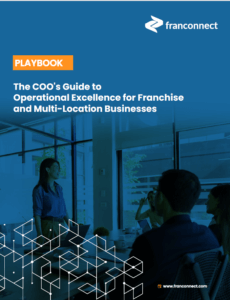Written by Kaleigh Wells
When it comes to training and development in franchising, there are so many ways that the content, best practices, and insights are being delivered. In a franchise system, there is continuous learning. While traditional group training in a classroom environment is still the norm at franchise headquarters, ongoing development for unit owners and their teams is vital. No one wants to be stuck in a classroom for weeks on end, so alternative delivery methods like eLearning or on-the-job training are on the rise. With so many creative ways to acquire best practices and insights, training and development in franchising has never been more accessible or engaging. Have you ever felt like you couldn’t possibly absorb any more information during an eight-hour lecture? Turns out, your brain might not be able to retain as much as you hoped. Studies show that only a small percentage of training content is remembered after spending the entire day in a classroom.
The Shift to On-Demand Training
Say goodbye to traditional synchronous training and hello to on-demand! It’s the trend that’s taking over and for good reason. Not only can employees learn at their own pace and schedule, but intuitive tools like a learning management system can make the process even easier. No more boring lectures or missed training sessions – with on-demand training, the world of education is at the brand’s fingertips.
On-demand training is not only convenient but it’s also cost-effective. With traditional classroom learning, there are added expenses associated with the physical space, instructor fees, and materials. On the other hand, on-demand training can be delivered through digital platforms at a fraction of the cost. Modern franchisors are utilizing on-demand training videos, webinars, and virtual instructor-led courses to provide the best possible education for their franchisees and their front-line employees. This type of self-paced learning allows for a consistent experience for everyone in the system regardless of geography or time zone. It also eliminates the need for long-distance travel which can save both time and money.
The Benefits of Ongoing Support
Franchisors are on the constant lookout for ways to provide the best possible support for their unit owners. A major part of this involves providing ongoing training and development opportunities that will equip front-line employees with the knowledge and skills they need to be successful, in turn making that location and brand successful. With on-demand training, franchisors can provide immediate access to necessary information in a convenient way. Employees are more likely to absorb the content when they have control over their own learning schedule and rate. This type of ongoing education is essential for businesses today because it enables employees to stay ahead of trends, keep up with changing regulations, and maintain operational excellence across all units in the system.
Let’s look at the areas of the business that are most important in a Franchise Disclosure Document (FDD). A franchisor must provide a table of contents outlining what information will be trained on, who will be leading the training, and how long these sessions will last. But more often than not, there can be a discrepancy. For example, if the table of contents promises a two-week training program but only three hours of material are included in the training manual, it’s an important time to consider what the training program puts forward. If your brand’s primary goal is to build sales through customer acquisition, ask yourself if three hours of training is sufficient for providing your employees with the skills, attention, and practice they need to excel. Investing in an effective learning management system can help keep your business on track while maintaining the highest standards.
Gamification and Creating Brand Culture
When we interviewed Keith Gerson, our resident President of Franchise Operations & Certified Franchise Executive, he shared, “I have determined, over a lifetime in franchising, is that if you are going to be training no matter what. The only way you know if somebody has actually picked up the content you are feeding them, is if they can demonstrate and articulate exactly what that is. A lot of people will sit in a classroom, but you don’t ever really know whether or not the employee or the franchisee has effectively been trained or not.”
Starting off on the right foot with employee training involves more than just showcasing the steps. A two-step process merges expertise with engagement to ensure that trainees fully comprehend the material. Asynchronous training, which doesn’t require live instructors but can be facilitated through a responsive LMS platform, opens the door to gamification methods that inject fun and creativity into the learning process. By blending methods and leveraging technology, your team will be inspired to not only understand the what of the process, but the how and the why too.
Gamifying your workplace might just be the secret ingredient to unlocking your employee’s potential. By integrating playful elements into everyday work, you directly influence your team’s behavior and motivation to improve performance. Not only that, but gamification ignites collaboration and positive reinforcement to fuel employee achievements. Most importantly, gamification strengthens the relationship between employer and employee, creating a culture of engagement and loyalty.
In summary, training your employees can be a complex process that requires more than just an outline of material. Brands need to take the initiative to invest in effective learning management systems and gamification strategies to ensure their staff is not only well-trained but also motivated and inspired by their work. By creating a workplace culture full of rewards, competition, and collaboration through gamifying tasks, employers will foster loyalty among employees while ensuring they are equipped with the skills needed for success. With these techniques in place, businesses have the power to unlock employee potential and increase sales performance of individual locations, thus boosting your brand and ultimately – sales.
For more information on FranConnect’s world-class learning management system, World Manager, offering training, development, and communications request a demo with our team today!





 Ian Walsh
Ian Walsh








